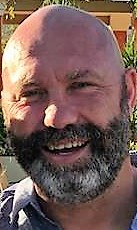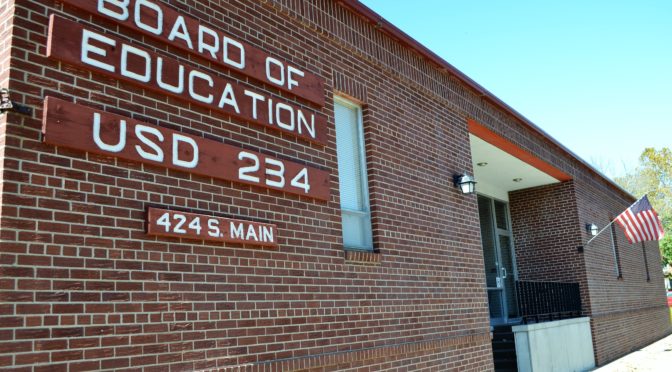Flag Project to benefit the Fort
PROUDLY SHOW YOUR PATRIOTISM:
FLY THE FLAG EFFORTLESSLY
The Friends of Fort Scott National Historic Site Inc. announce a new project to benefit programming at Fort Scott National Historic Site that also honors our country and beautifies our city. The Friend’s U.S. Flag Project provides homeowners and businesses, within the city limits of Fort Scott, the opportunity to fly the Stars and Stripes on five different flag holidays without the hassle of purchasing, erecting, and storing a flag and pole. You don’t even have to remember the holiday!
For $35 annually, the Friends will install a 3’x5′ flag on a 10-foot staff at your home or business on each of the following Flag Holidays in 2019:
Memorial Day, May 27th
Flag Day, June 14th
Fourth of July, July 4th
Labor Day, September 2nd
Veteran’s Day, November 11th
Sign up by October 1, 2019, and you will also get Veteran’s Day 2018 included in the offer–SIX DAYS for the price of FIVE!!!
Agreements can be obtained at the Fort Scott Area Chamber of Commerce or can be downloaded from the Friends website. Contact Kelley Collins at 417-684-2484 or Martha Scott at 620-224-9924 for further information.
All proceeds support programs at Fort Scott National Historic Site. These include Symbols of Sacrifice, a Citizenship Ceremony, Candlelight Tour, Youth Engagement, and many others.
Show your patriotism and help our local National Park by lining the streets of Fort Scott with our nation’s symbol!
The U.S. Flag Project is a yearly project sponsored by the Friends of Fort Scott National Historic Site. Once signed up, you will receive the option to renew annually.
Bourbon County Commission Agenda for Sept. 4
Agenda
Bourbon County Commission Room
2nd Floor, County Courthouse
210 S. National Avenue
Fort Scott, KS 66701
Tuesdays starting at 9:00
Date: September 4th, 2018
1st District-Lynne Oharah Minutes: Approved: _______________
2nd District-Jeff Fischer Corrected: _______________
3rd District-Nick Ruhl Adjourned at: _______________
County Clerk-Kendell Mason
10:00-12:00-Jail Update Meeting at the Jail
Justifications for Executive Session:
Personnel matters of individual non-elected personnel
Consultation with an attorney for the body or agency which would be deemed privileged in the attorney-client relationship
Matters relating to employer-employee negotiations whether or not in consultation with the representative(s) of the body or agency
Confidential data relating to financial affairs or trade secrets of corporations, partnerships, trusts and individual proprietorships
Preliminary discussions relating to the acquisition of real property
Matters relating to the security of a public body or agency, public building or facility or the information system of a public body or agency, if the discussion of such matters at an open meeting would jeopardize the security of such public body, agency, building, facility or information system
Obituary of Peyton R. Riedel
Peyton Ryne Riedel, 25, of Colorado Springs, Colorado passed away on August 28th, 2018 in Colorado Springs as a result of a tragic automobile accident.
On November 14, 1992, in Wichita, Kansas the Lord blessed the home of Stephen and Pamela Riedel (Simons) with the gift of a daughter. She was the center of their life and brought much joy to their family. Peyton spent her early school years attending St. Elizabeth Ann Seton Catholic School in Wichita and graduated high school in 2011 with honors from Fort Scott High School in Fort Scott, Kansas.
Peyton was a vivacious, loving, free-spirited young woman with a bright future ahead of her. She loved all things purple, softball, and animals; particularly her French Bulldog, Lulu. She had a lifelong softball career and played while attending college at Newman University in Wichita where she received her Bachelor Degrees in Psychology and Criminal Justice. This fall would mark her third year as an Assistant Softball Coach at Pine Creek High School in Colorado Springs, CO. Her love for athletics fueled her passion to further her education. She graduated in December of 2017 with a Master’s degree in Sports Psychology from the University of the Rockies. She had a dream to work at the Olympic Training Facility as a Sports Psychologist and was preparing her resume to pursue that passion this fall.
Peyton was fun and energetic, always able to put a smile on your face. She was adored by her family, especially her second cousins, and all the children she cared for. Her warm laughter and quick wit will be greatly missed and always remembered.
She is survived by her mother, Pamela Riedel of Kansas City, Missouri, her father, Stephen Riedel of Wichita, Kansas, her paternal grandmother, aunts, uncles, cousins, and many, many friends.
She was preceded in death by her maternal grandparents, Cleland and Mary Allen, paternal grandfather, Robert Riedel, uncle, Billy Simons, and cousin Gabriel Hoover.
Visitation will be Monday, September 3rd, 2018, from 5-7pm at the Cheney Witt Chapel, 201 South Main, Fort Scott, Kansas 66701.
Services will be Tuesday, September 4th, at 11 am at the same location.
In lieu of flowers, memorial contributions may be made to the Peyton Riedel Softball Memorial or the Humane Society of your choice. Words of remembrance may be submitted to the online guestbook at cheneywitt.com.
James Wood Selected For USD 234 School Board

The Bourbon County Sheriff’s Office Daily Reports Aug. 31
Click below for the Bourbon County Sheriff’s Office daily reports. They can be reached at (620) 223-2380.
The Fort Scott Police Dept. Daily Reports Aug. 28-30
Click here for the Fort Scott Police Department daily reports. The FSPD is located at 1604 S. National, Fort Scott, KS 66701 and can be reached at 620-223-1700.
Taco Salad Fundraiser For Alzheimer’s Association
Medicalodges Fort Scott, 915 S. Horton, has organized a Taco Salad Dinner Fundraiser for the Alzheimer’s Association for Thursday, Sept. 6 from 10 a.m. to 2 p.m.
The taco salad dinner also includes a dessert and the price is $5.
Drive-thru service is at the south end of the building. Pull up and order and it will be delivered to your car.
You may order in advance by calling 620-223-0210.
Delivery is available for orders of ten dinners or more.
Those People by Patty LaRoche
Ask and it will be given to you; seek and you will find; knock and the door will be opened to you. (Matthew 7:7)
Two weeks ago, I wrote about my experience while working alongside Misty, the kitchen director, in a homeless shelter. Referring to the ones she served, Misty reminded me that any one of “us” could end up like “them.”
She is right, of course. Every one of us, if broken enough, is vulnerable. That message was reinforced a few days ago when I ran across sociologist Brene Brown’s TED talk which addresses this heartbreaking issue. “Most of us are one paycheck, one divorce, one drug-addicted kid, one mental health diagnosis, one serious illness, one sexual assault, one drinking binge, one night of unprotected sex, or one affair away from being “those people”—the ones we don’t trust, the ones we pity, the ones we don’t let our children play with, the ones bad things happen to, the ones we don’t want living next door.”
Possibly some of you readers have no idea what Brown is talking about. I do. And so do many of my friends who are praying for a loved one who is making destructive choices: to drink too much; to “shop-‘til-they-drop”; to have sex with multiple partners (I am witnessing to one such person now); to refuse Christian counseling; to click on porn; to ignore the needs of their spouse and children; to turn their backs on God.
The list is endless.
Last week I wrote about “Agnes,” a homeless woman I encountered who spends much of her day on a bench near the ballpark where my husband works. For over a month I have tried to help her. Her only possession seems to be a ragged Kleenex which she uses to dab the sweat from her brow. She doesn’t want water. Or food. Or clothes, even though the pants she wears (every single day) have an 18” hole in the back of them. She doesn’t want a ride to the new, $20 million women’s shelter located two miles from where she hangs out. So, when all my offers failed, I called a police hotline and was told an officer would pick Agnes up and take her to the shelter.
The next day, when Agnes’ bench was empty, I celebrated, only to be disheartened within 24 hours when she was back at her usual spot. When I stopped to check on her, she told me that her credit cards “are in a red window” and she “can’t get them out.” On one visit, she shared that she and her “group are fine.” I questioned what “group” she meant, and she said, “They are here.” I left, frustrated and sad.
Because of Agnes and the dozens of homeless who live in my neighborhood, I volunteered to work at the nearby homeless shelter (Aug. 18 article). There were two interviews before I officially was vetted, and at my first meeting I described Agnes to the director and asked if she knew her. She did. Her answer should not have surprised me. “Some people are so mentally ill, they don’t want to be helped. The volunteers can’t make someone take a shower or change clothes or come to a class on how to find a job.”
“All she has to do is ask,” I was told.
Which, when you think of it, is all I had to do—to ask if I could help.
Price Chopper Fundraiser For Paizlee Crumby Aug. 31-Sept. 1
Sen. Moran at Ellis Center Aug. 31 at 7:30 a.m.
Openings on Library Board
Two openings (Must be a City resident) for the Fort Scott Library Board.
The function of the Fort Scott Library Board is to review requests in reference to the library. This Board meets monthly at 5:00 p.m. on the third Tuesday of the month.
If you have a desire to serve on this board and meet the above requirements, please submit a letter of interest to the City Clerk, Diane Clay, 123 S. Main, Fort Scott, Kansas 66701. She will then submit your letter of interest for consideration to the City Commission. All of the boards and commissions serve on a volunteer basis and are not compensated. If you would like more information on this board, please contact Diane Clay, City Clerk at 620-223-0550 or [email protected]. Please submit your letter of interest by September 14th, 2018.







